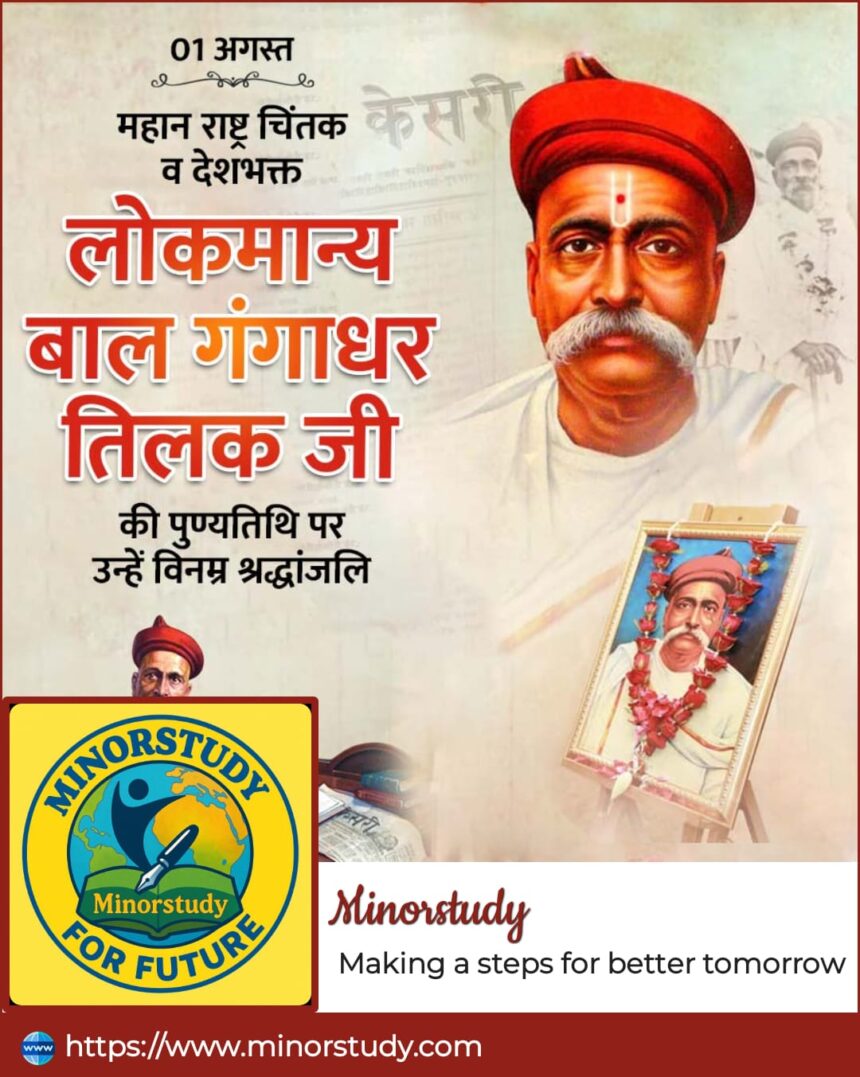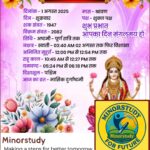🕉️ All About Lokmanya Bal Gangadhar Tilak Ji: A Timeless Icon of Nationalism and Courage
🧭 Introduction
Lokmanya Bal Gangadhar Tilak — a name that still echoes in the hearts of Indians like a roar of independence. Known as “The Father of Indian Unrest” by the British, and “Lokmanya” (beloved by the people) by his countrymen, Tilak Ji was much more than a freedom fighter — he was a teacher, reformer, journalist, philosopher, and social visionary.
- 🕉️ All About Lokmanya Bal Gangadhar Tilak Ji: A Timeless Icon of Nationalism and Courage
- 📜 History of Lokmanya Tilak Ji
- 🕰️ Timeline of Key Events
- 💡 Fascinating Facts About Lokmanya Tilak
- ❓ Frequently Asked Questions (FAQs)
- Q1: Why is Tilak called “Lokmanya”?
- Q2: What was Tilak’s slogan?
- Q3: What did he believe about the Bhagavad Gita?
- Q4: How did Tilak contribute to Indian unity?
- Q5: Was Tilak a supporter of violence?
- 🎯 Significance in Indian History
- 🙏 Observance and Tribute
- ✍️ Heartfelt Wishes and Remembrance
- 🧠 Important Points to Remember
- 🧬 Importance in Our Life and Society Today
- 🔹 Civic Responsibility
- 🔹 Cultural Confidence
- 🔹 Media as a Tool for Truth
- 🔹 Youth Empowerment
- 🔹 Unity Beyond Caste
- 🏁 Conclusion: The Legacy That Refuses to Fade
His ideology and efforts were instrumental in awakening the national consciousness in colonial India. This article unfolds the inspiring story of this fearless patriot with over 7 powerful insights and a complete human-centric perspective.
📜 History of Lokmanya Tilak Ji
Full Name: Keshav Gangadhar Tilak
Born: 23 July 1856, Ratnagiri, Maharashtra
Died: 1 August 1920, Mumbai, India
Title: Lokmanya (“Accepted by the people as their leader”)
Profession: Teacher, Lawyer, Journalist, Nationalist Leader
Born in a Chitpavan Brahmin family, Tilak grew up immersed in Indian culture, Sanskrit literature, and history. He completed his Bachelor of Arts in Mathematics and LL.B. degree from the University of Bombay (now Mumbai University).
Tilak’s early opposition to British policies began in education, where he criticized the Westernized syllabus for alienating Indians from their own heritage.
🕰️ Timeline of Key Events
| Year | Milestone |
|---|---|
| 1856 | Born in Ratnagiri, Maharashtra |
| 1871 | Graduated in Mathematics from Deccan College |
| 1881 | Co-founded the newspaper Kesari (Marathi) and Mahratta (English) |
| 1890 | Joined Indian National Congress |
| 1897 | Imprisoned by British for sedition |
| 1905 | Supported Swadeshi Movement post-Bengal Partition |
| 1908 | Arrested and sent to Mandalay Jail for 6 years |
| 1914 | Returned from prison, resumed political activism |
| 1916 | Formed Home Rule League with Annie Besant |
| 1920 | Died in Bombay on 1 August |
💡 Fascinating Facts About Lokmanya Tilak
First to demand “Swaraj” (Self-rule) as a birthright — long before Gandhiji.
Launched Ganesh Chaturthi as a public festival to unify Indians against British rule.
Authored ‘Gita Rahasya’, a profound philosophical work while in prison in Mandalay.
Edited ‘Kesari’, which became a fiery tool against British imperialism.
Formed the Home Rule League, drawing inspiration from Ireland’s independence movement.
Used Shivaji Maharaj as a symbol of resurgence and pride for the youth.
Had a visionary understanding of Hindu Dharma, deeply rooted in action (Karma Yoga).
❓ Frequently Asked Questions (FAQs)
Q1: Why is Tilak called “Lokmanya”?
A: “Lokmanya” means “accepted by the people.” Tilak earned this title for his immense popularity and fearless leadership among the masses.
Q2: What was Tilak’s slogan?
A: His iconic slogan: “Swaraj is my birthright, and I shall have it.”
Q3: What did he believe about the Bhagavad Gita?
A: Tilak interpreted the Gita as a call to action (Karma Yoga), urging people to fight for dharma (righteousness), not to escape into renunciation.
Q4: How did Tilak contribute to Indian unity?
A: By organizing festivals like Ganesh Utsav and Shivaji Jayanti, he brought people from different castes, regions, and religions together against British rule.
Q5: Was Tilak a supporter of violence?
A: Tilak was not a promoter of violence but believed in assertive and active resistance. He supported revolutionary nationalism while respecting moral and cultural values.
🎯 Significance in Indian History
Tilak Ji’s contribution marked the shift from moderate to assertive nationalism in Indian politics. Before him, Congress primarily focused on petitions. He injected a new wave of self-confidence, assertiveness, and pride in Indian identity.
His influence:
Inspired revolutionaries like Bhagat Singh and Netaji Subhas Chandra Bose.
Laid the groundwork for mass movements led by Mahatma Gandhi.
Strengthened the cultural backbone of the freedom movement.
🙏 Observance and Tribute
Every year, 1st August is observed as Lokmanya Tilak Punyatithi (death anniversary) across India, especially in Maharashtra. His legacy is remembered through:
Public speeches, seminars, and cultural programs
Tilak Memorial Trusts and Schools
Honoring him in textbooks, statues, and institutions
✍️ Heartfelt Wishes and Remembrance
If you’re commemorating Lokmanya Tilak Ji, you can express your thoughts like this:
🕊️ “Tributes to the fearless son of India, Lokmanya Tilak Ji, who lit the fire of self-rule when darkness loomed large. His courage continues to inspire every Indian heart.”
🪷 “On his Punyatithi, let us remember Tilak Ji’s immortal words — Swaraj is my birthright, and I shall have it — and strive to preserve the freedom he fought for.”
🧠 Important Points to Remember
Swaraj: Tilak turned this concept from a dream into a demand.
Press and Media: His newspapers challenged colonial narratives.
Cultural Nationalism: Tilak knew the power of festivals to awaken collective spirit.
Ideological Depth: He saw religion as a means to action, not escape.
Political Legacy: Formed bridges between early moderates and later revolutionaries.
🧬 Importance in Our Life and Society Today
Tilak’s ideology remains profoundly relevant in the modern era.
🔹 Civic Responsibility
He taught that every citizen has the duty to engage in national progress, not wait for others.
🔹 Cultural Confidence
He showed how celebrating your roots can be a form of resistance and pride.
🔹 Media as a Tool for Truth
Through Kesari, he used media to educate and empower — a lesson still vital today.
🔹 Youth Empowerment
His speeches ignited youth passion. Today’s youth can draw strength from his fearless truth-telling and conviction.
🔹 Unity Beyond Caste
He attempted to break caste barriers by promoting shared spaces of worship and celebration.
🏁 Conclusion: The Legacy That Refuses to Fade
Lokmanya Tilak Ji’s life is a radiant example of patriotism powered by intellect, culture, and action. He didn’t just resist British rule — he reshaped the very identity of India’s freedom movement. He was not content to just dream; he demanded.
Even a century after his death, Tilak’s roar for Swaraj reverberates in every protest for justice, every celebration of Indian culture, and every act of patriotic duty.
Let us not merely remember Tilak Ji — let us live his ideals. Because as long as we value truth, self-respect, and action, Lokmanya lives on.








